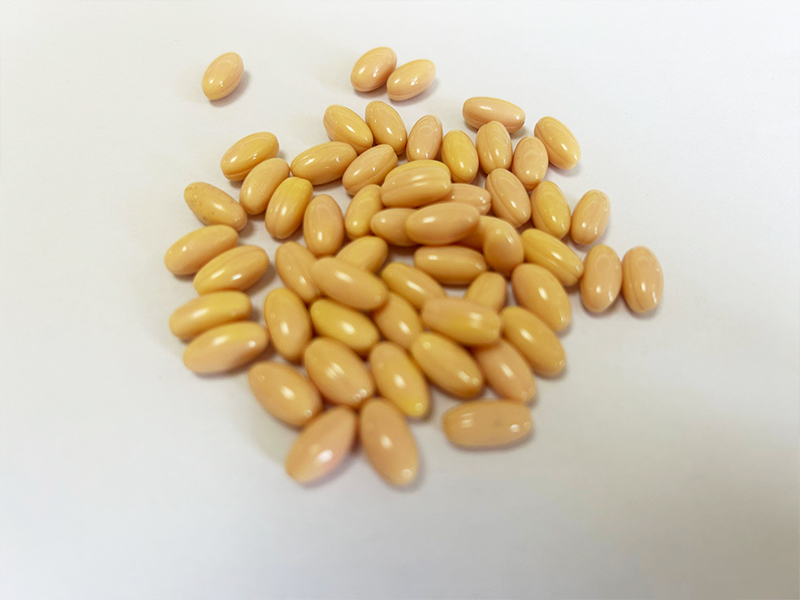Coenzyme Q10 (CoQ10) capsules typically contain the following basic ingredients:
Coenzyme Q10 (CoQ10): This is the primary active ingredient, a compound that is naturally produced by the body and is also found in small amounts in certain foods. Coenzyme Q10 plays a crucial role in generating energy in cells and also works as an antioxidant.
Fillers and Binders: These are often inert substances added to help form the capsule and ensure proper manufacturing. Common fillers and binders may include cellulose, rice flour, or other similar substances.
Capsule Shell: This is typically made from gelatin or a vegetarian alternative like cellulose or vegetable cellulose, which encases the Coenzyme Q10 and other ingredients.
Stabilizers: Some formulations may include stabilizers to maintain the potency and shelf-life of the Coenzyme Q10. Common stabilizers include magnesium stearate or silicon dioxide.
Other Ingredients: Depending on the manufacturer and specific formulation, Coenzyme Q10 capsules may contain additional ingredients such as antioxidants (e.g., vitamin E), flavorings, or colorings. These additional ingredients are typically added to enhance the product’s stability or improve its taste and appearance.

It’s essential to carefully read the label and consult with a healthcare professional if you have any questions or concerns about the ingredients in Coenzyme Q10 capsules, especially if you have allergies or sensitivities.
The application of Coenzyme Q10 Capsules
Coenzyme Q10 (CoQ10) is a naturally occurring compound found in every cell of the body. It plays a vital role in producing energy in the mitochondria, which are the powerhouses of cells. Coenzyme Q10 also acts as an antioxidant, protecting cells from damage caused by harmful molecules.
Coenzyme Q10 supplements, often available in capsule form, have been studied for various potential health benefits. Here are some of the applications of Coenzyme Q10 capsules:
Heart Health: Coenzyme Q10 is involved in energy production in heart cells, and research suggests that it may help improve symptoms of heart failure, reduce the risk of future cardiac events, and lower blood pressure. It’s often used as a complementary treatment alongside standard medications for heart conditions.
Mitochondrial Disorders: Coenzyme Q10 deficiency can lead to mitochondrial dysfunction, which can cause a range of health problems. Supplementation with Coenzyme Q10 may help improve symptoms in people with mitochondrial disorders.
Antioxidant Properties: Coenzyme Q10 acts as an antioxidant, neutralizing free radicals and reducing oxidative stress in the body. This can help protect cells from damage and may have anti-aging effects.
Migraine Prevention: Some studies suggest that Coenzyme Q10 supplementation may help reduce the frequency and severity of migraines, possibly by improving mitochondrial function and reducing inflammation.
Exercise Performance: Coenzyme Q10 plays a role in energy production during exercise, and some research suggests that supplementation may improve exercise performance and reduce fatigue, especially in older adults.
Statins Side Effects: Statin medications, which are used to lower cholesterol, can reduce CoQ10 levels in the body. Supplementing with Coenzyme Q10 may help mitigate some of the side effects of statins, such as muscle pain and weakness.

Periodontal Health: Coenzyme Q10 may help improve gum health and reduce inflammation in the gums when used as a supplement or in topical form.
Neurological Conditions: There is some evidence to suggest that Coenzyme Q10 supplementation may have neuroprotective effects and could be beneficial for conditions such as Parkinson’s disease and Alzheimer’s disease, although more research is needed in this area.
It’s important to note that while Coenzyme Q10 supplements are generally considered safe for most people, they may interact with certain medications, such as blood thinners and blood pressure medications. As with any supplement, it’s best to consult with a healthcare professional before starting Coenzyme Q10 supplementation, especially if you have any underlying health conditions or are taking medications. They can provide personalized advice based on your individual health needs.
